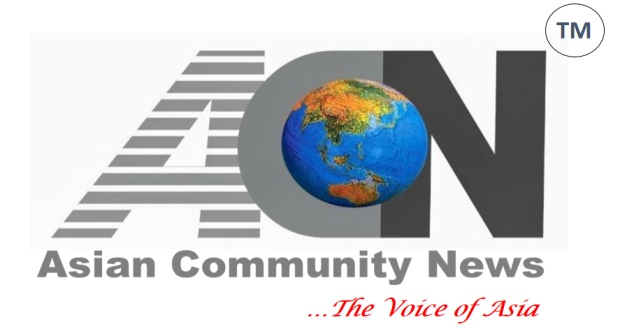Korean language students prepare to celebrate Indo-Korean Independence Day
As August 15 is the National Liberation Day of the Republic of Korea, and Independence Day of India, the GDS students are readying to present the play “The Legend of Princess Suriratna”, Korean folk song Arirang, a performance on the “Korean War and Role of Indian Army in this War”, etc.
NEW DELHI/GURGRAM: As August 15 – the National Liberation Day of the Republic of Korea coincides well with India’s Independence Day, many people in both countries celebrate this big day jointly.
In one such instance, the students of the foreign language training institute Global Diction Studio (GDS) in Gurugram in India are preparing hard to celebrate the joint I-day. A day before August 15, these Korean language and culture students learning will be performing in a series of events.
The GDS students are celebrating Indo-Korea Independence Day on August 14 when they would be presenting the play “The Legend of Princess Suriratna”, Korean folk song Arirang, a performance on the “Korean War and Role of Indian Army in this War”, and a “Korean poem”. The events also include “K-wave before the Pandemic”, “Similarity of Languages”, and “K-wave in the recent years”,

The good thing about this event is that it is being organized by the students themselves with the help of, and under the guidance of their trainers Nikita, Kiran and Sunil.
Incidentally, August 15 happens to be the National Liberation Day of the Republic of Korea. On this day, it commemorates Victory over Japan, when at the end of World War II, the U.S. and Soviet forces helped end 35 years of Japanese occupation and its colonial rule that lasted from 1910–1945.
While narrating about the play “The Legend of Princess Suriratna”, Sangeeta Yadav, Founder, GDS, said, “The play explains the connections between India with Korea through the most famous Korean folklore of Indian princess visiting Korea and getting married to the Korean King. This is also recorded as the first International Marriage of Korea. The play consists of three scenes showing the major events that happened during the course of the princess and king’s marriage.”

The Scene-I talks about the dream that King of Ayuta has in which he is told to send her daughter to Korea. Scene II shows the arrival of Princess Ratna in Korea where King Kim Suro waits for her. Scene III focuses on the dialogues of the life after marriage of Princess Suriratna and King Kim Suro and what happened after that.
Priyanka, an intermediate Level-1 student is playing the lead role of Princess Suri-ratna, the beginner Level-2 student Yatharth performs as the King of Ayuta, the beginner Level 1 student) Mahesh as the King Suro, and the role of Indian Minister is played by Shweta a beginner Level 2 student at GDS.
The Intermediate Level 1 student Angel would be the Emcee (Master of Ceremonies) of the event while Neetu – an Intermediate Level 1 student will be there as a narrator.
Korean folk song Arirang to be performed by Kiya, a beginner Level 1 student is the traditional song of Korea having more than 3,600 variations. Currently also, the song is sung in both South and North Korea, and represents the symbol of unity in the region that was divided by the Korean War.
The play “Korean War and Role of Indian Army in the Korean War” narrates the crucial role played by 62 Para Ambulance of Indian Army that had rushed its paramedics to this war (1050-53). The roles of Korean soldiers are played by Kiya, a Beginner Level 1 student, Doma a Beginner Level 2 student, and Yatharth a beginner Level 2 student.
Ashmita, a Beginner Level 2 student plays the role of the then Indian Prime Minister Jawaharlal Nehru, and Shweta a Beginner Level 2 student as Lieutenant Colonel A.G. Rangaraj.Another play “Korean MNCs coming to Indian Market” will have interns Nidhi playing the role of Daughter, Shivani as Mother, and Beginner Level 1 student as Father. It shows the strengthening of relations within the countries in the technological field, where Korean MNCs like Samsung and LG have been residing in the Indian households from the late 90s and early 2000. Korea being the fifth largest source of investment.
Korean Poem will be presented by the younger students aged between 8 and 13 while Kiya will present “K-wave before the Pandemic Performance”, “Similarity of Languages” by Tannu a Beginners Level 1 student), and “K-wave in the recent years” by Kiya, Nidhi, Shivani, and Priyanka.
While talking about the Culture and Cultural Classes being run by GDS, Nikita the Director of Korean Languages, GDS, said that culture was an umbrella term which encompassed the social behaviour and norms found in human societies, as well as the knowledge, beliefs, arts, laws, customs, capabilities, and habits and the language of the individuals in these groups.
“Cultural Classes are a way to help you to get completely immersed in Korean language learning. GDS has always been sharing the Basic Cultural information in reference to each chapter during the classes. The Cultural Classes started later on with the aim to provide students with more detailed information regarding the Culture and Colloquial terms of Korean people. These weren’t a way to replace the Basic Cultural information exchange of class but rather an effort to bring all our students together to learn more about the Korean Culture and Traditions.
GDS’s first class on 30th May, 2021 where it discussed the “Korean Age System” and ever since that class has not stopped. A lot of interesting Korean culture topics have been covered so far and we hope to continue that for years to come.



